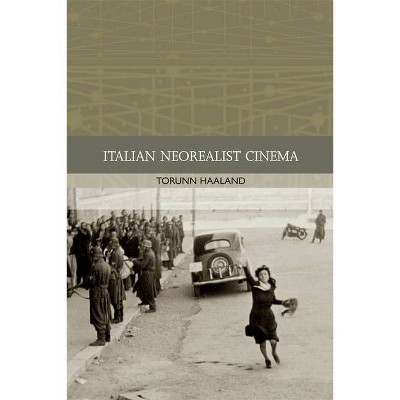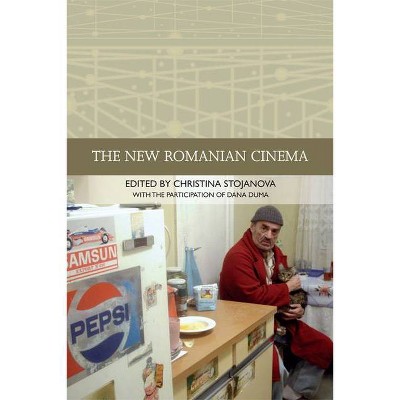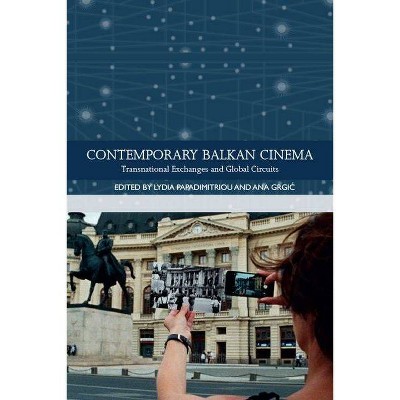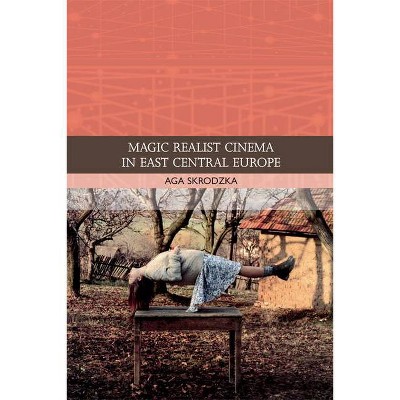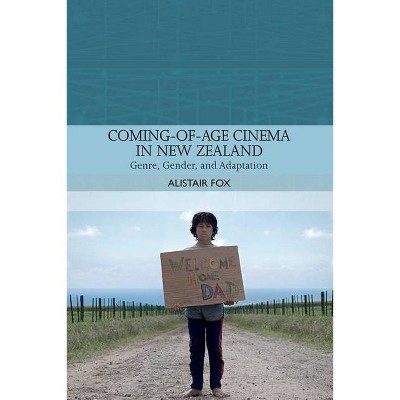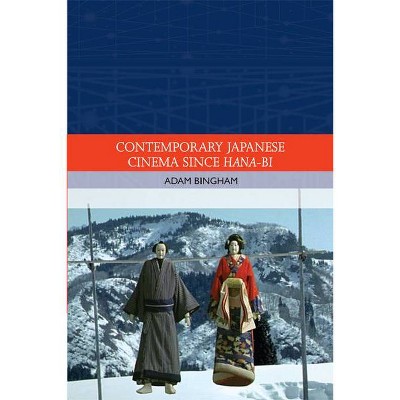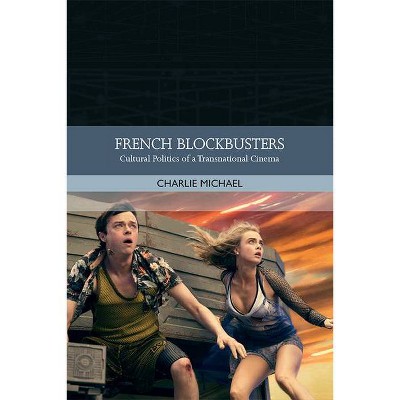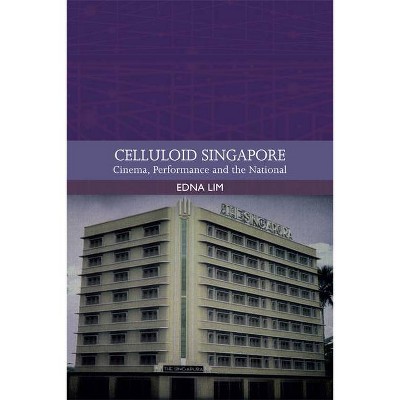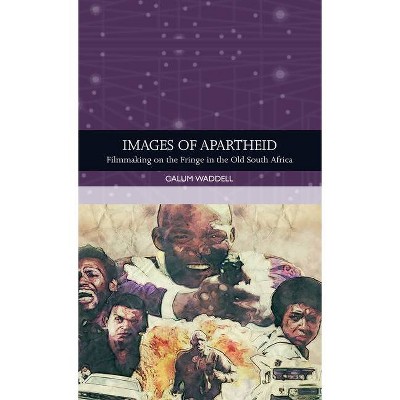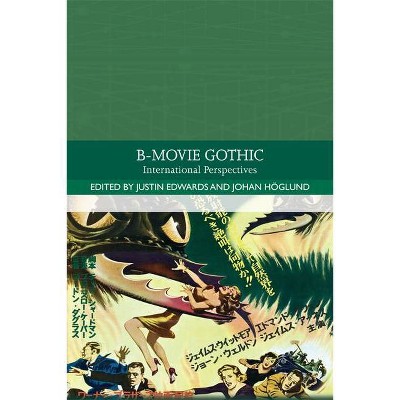Slow Cinema - (Traditions in World Cinema) by Tiago de Luca & Nuno Barradas Jorge (Paperback)
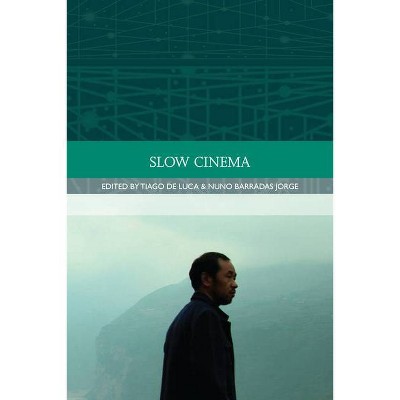
Similar Products
Products of same category from the store
AllProduct info
<p/><br></br><p><b> About the Book </b></p></br></br><p>Focused on a body of films bound together through a cinematic aesthetic of slowness, this book is a pioneering effort to situate, theorise and map out slow cinema within contemporary global film production and across world cinema history. </p><p/><br></br><p><b> Book Synopsis </b></p></br></br><p>In the context of a frantic world that celebrates instantaneity and speed, a number of cinemas steeped in contemplation, silence and duration have garnered significant critical attention in recent years, thus resonating with a larger sociocultural movement whose aim is to rescue extended temporal structures from the accelerated tempo of late-capitalism. Although not part of a structured film movement, directors such as Carlos Reygadas, Tsai Ming-liang, Béla Tarr, Pedro Costa and Kelly Reichardt have been largely subsumed under the term 'slow cinema'. But what exactly is slow cinema? Is it a strictly recent phenomenon or an overarching cinematic tradition? And how exactly do slow cinemas interrelate on an aesthetic, technical and political level?</p> <p></p> <p>Deploying the concept of slowness as an umbrella category under which filmmakers and traditions from different historical and geographical backgrounds can fruitfully converge, this innovative collection of essays interrogates and expands the frameworks that have generally informed slow cinema debates. Repositioning the term in a broader theoretical space, the book combines an array of fine-grained studies that will provide valuable insight into the notion of slowness in the cinema, while mapping out past and contemporary slow films across the globe.</p><p/><br></br><p><b> From the Back Cover </b></p></br></br>'The loose, international movement known as contemporary slow cinema is both the most hotly discussed and the least popularly seen and understood body of feature films. This brilliant, extensive collection reveals the forerunners and current masters, the complex politics and contexts, the intricate forms and pleasures of an exciting trend.' Adrian Martin, Monash University In the context of a frantic world that celebrates instantaneity and speed, a number of cinemas steeped in contemplation, silence and duration have garnered significant critical attention in recent years, thus resonating with a larger sociocultural movement, which aims to rescue extended temporal structures from the accelerated tempo of late-capitalism. Although not part of a structured film movement, directors such as Carlos Reygadas, Tsai Ming-liang, Béla Tarr, Pedro Costa and Kelly Reichardt have been largely subsumed under the term 'slow cinema'. But what exactly is slow cinema? Is it a strictly recent phenomenon or an overarching cinematic tradition? And how exactly do slow cinemas interrelate on an aesthetic, technical and political level? Deploying the concept of slowness as an umbrella category under which filmmakers and traditions from different historical and geographical backgrounds can fruitfully converge, this innovative collection of essays interrogates and expands the frameworks that have generally informed slow cinema debates. Repositioning the term in a broader theoretical space, the book combines an array of fine-grained studies that provide valuable insight into the notion of slowness in the cinema, while mapping out past and contemporary slow films across the globe. Tiago de Luca is Lecturer in Film Studies at the University of Liverpool. Nuno Barradas Jorge is a PhD candidate in the Department of Culture, Film and Media at the University of Nottingham. Cover image: Still Life, 2006, Dir. Zhangke Jia (c) Xstream Pictures Cover design: [EUP logo] www.euppublishing.com<p/><br></br><p><b> Review Quotes </b></p></br></br><br><p>'In <em>Slow Cinema</em>, editors Tiago de Luca and Nuno Barradas Jorge explore the emergence of the titular slow cinema as an aesthetic category that animates a particular sense of cinematic time and duration, placing emphasis on introspection, reflection and contemplation... the volume is especially illuminating when underscoring an integral link between slow cinema, the non-human and ecocinema.'</p>--Sander Hölsgens "LSE Review of Books"<br><p/><br></br><p><b> About the Author </b></p></br></br><p>Tiago de Luca is Reader in Film Studies at the University of Warwick. He is the author of Planetary Cinema: Film, Media and the Earth (2022), Realism of the Senses in World Cinema: The Experience of Physical Reality (2014) and the editor (with Nuno Barradas Jorge) of Slow Cinema (2016). He is the editor (with Lúcia Nagib) of the Film Thinks series. <p>Nuno Barradas Jorge is a Teaching Associate in Film and Television Studies in the School of Cultures, Languages and Area Studies at The University of Nottingham. He is the co-editor, with Tiago de Luca, of Slow Cinema (Edinburgh University Press, 2016). His work appeared in, among others, the journal Adaptation and in the anthologies Migration in Lusophone Cinema (Palgrave Macmillan, 2014) and Global Portuguese Cinema (I.B. Tauris, 2017).<p>
Price History
Cheapest price in the interval: 33.95 on November 8, 2021
Most expensive price in the interval: 33.95 on December 20, 2021
Price Archive shows prices from various stores, lets you see history and find the cheapest. There is no actual sale on the website. For all support, inquiry and suggestion messagescommunication@pricearchive.us
